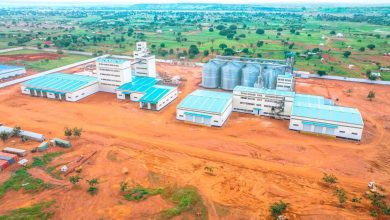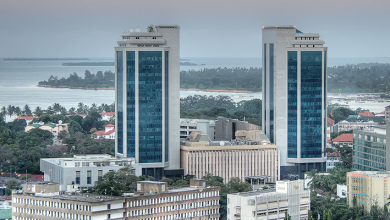Dar Declaration to accelerate economic growth – analysts

DAR ES SALAAM: ACADEMICS and analysts have lauded the Dar es Sa laam Energy Declaration, adopted by African Heads of State, as a potential catalyst for boosting electricity access and driving economic growth across the continent.
They emphasise the need for swift and comprehensive implementation to truly transform Africa’s energy land scape.
The declaration was adopted during the African Energy Summit, co-organised by the World Bank and the African Development Bank at the Julius Nyerere International Convention Centre (JNICC) in Dar es Salaam from Monday to Tuesday.
The summit brought together about 25 African Heads of State, over 40 heads of international organisations, 25 energy-focused billionaires and more than 1,500 delegates, who collectively charted a new path for sustainable energy access in Africa.
The declaration emphasises the commitment of Africa countries, in collaboration with global development partners, philanthropies and the private sector, to connect 300 million people to electricity by 2030.
It points the need to invest in clean cooking solutions, harness renewable energy sources like solar power and expand electricity infrastructure to provide affordable energy to citizens.
The declaration is backed by National Energy Compacts signed by 12 pilot countries, including Tanzania, which aims to increase electricity access from 46 to 75 per cent by 2030.
ALSO READ: Zanzibar to host International Kite Surfing Championship
Under the Mission 300 initiative, Tanzania targets connecting 8.3 million households. Dr Hildebrand Shayo, an economist and investment banker, expressed optimism about the declaration’s potential to accelerate economic growth across African countries, including Tanzania.
“The declaration will drive economic growth by providing access to afford able and reliable electricity. This will stimulate economic activities, boost productivity and create jobs.”
Dr Shayo said that sustainable electricity for homes, schools and hospitals would improve living standards, health outcomes and educational opportunities, contributing to a more productive workforce. He also noted that Mission 300 partners had pledged nearly 50 billion US dollars (about 127tri/-) to expand energy access, particularly in Tanzania, which would attract private sector participation and stimulate infrastructure development.
“The investments in the energy sector are essential for economic activity and will spur increased commerce and industrialisation,” Dr Shayo added.
The declaration also pro motes regional integration by investing in energy inter connections, harmonising transmission planning and fostering cooperation among African countries.
This col laboration will unlock Africa’s full energy potential, including gas, hydropower, solar, wind, geothermal and other clean energy sources.
A renowned economist and founding director of the Centre for Chinese Studies at the University of Dar es Salaam (UDSM), Professor Humphrey Moshi, lauded the shift towards renewable energy sources such as wind, solar and geothermal.
He said this move would help Africa withstand cli mate change effects, especially droughts that impact hydropower generation.
Prof Moshi said that Africa’s tropical climate offers a unique advantage for solar energy, with about 12 hours of sunshine a day.
He urged African leaders to uphold their commitments and collaborate with the private sector to invest in solar power, ensuring that all villages and households are connected to electricity.
He also stressed that electrifying households across Africa would reduce poverty, boost agricultural development and foster inclusive economic growth. “Electrification will bridge the power divide between rural and urban areas, fast-tracking development in Africa,” he said.
An economist at Saint Augustine University of Tanzania (SAUT), Dr Isaac Safari expressed confidence in the successful implementation of the declaration in Tanzania under the leadership of President Samia Suluhu Hassan.
He believes that the commitment shown by Dr Samia will ensure that the goals set during the summit are realised.
Dr Safari also insisted the significance of providing clean cooking solutions, which will increase productivity by reducing the time women in rural areas spend collecting firewood. He underlined the importance of public engagement and awareness to ensure all citizens understand the goals of the declaration and use electricity for economic growth.
Furthermore, he suggested that African leaders involve academics in research to ensure that power reliability is achieved, and the continent’s full economic potential is unlocked.





